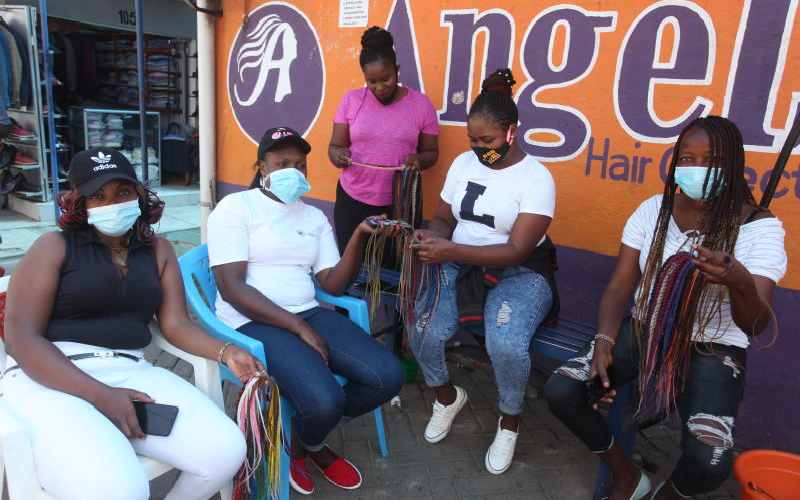
Latifay Wayua sits outside her once thriving salon business. At a glance Wayua appears to be basking in the sun but a closer look shows a woman deep in thought. Wayua is worried because she does not have fare back home and she doesn’t know what her children will eat tonight.
For Wayua, the tough times began with the announcement of the first confirmed Covid-19 case in Kenya on March 13.
“Despite us doing our part like setting up a place to wash hands at the entrance of Kenyatta Market, as well as availing hand sanitizer and wearing masks, clients still avoid this place,” says Wayua.